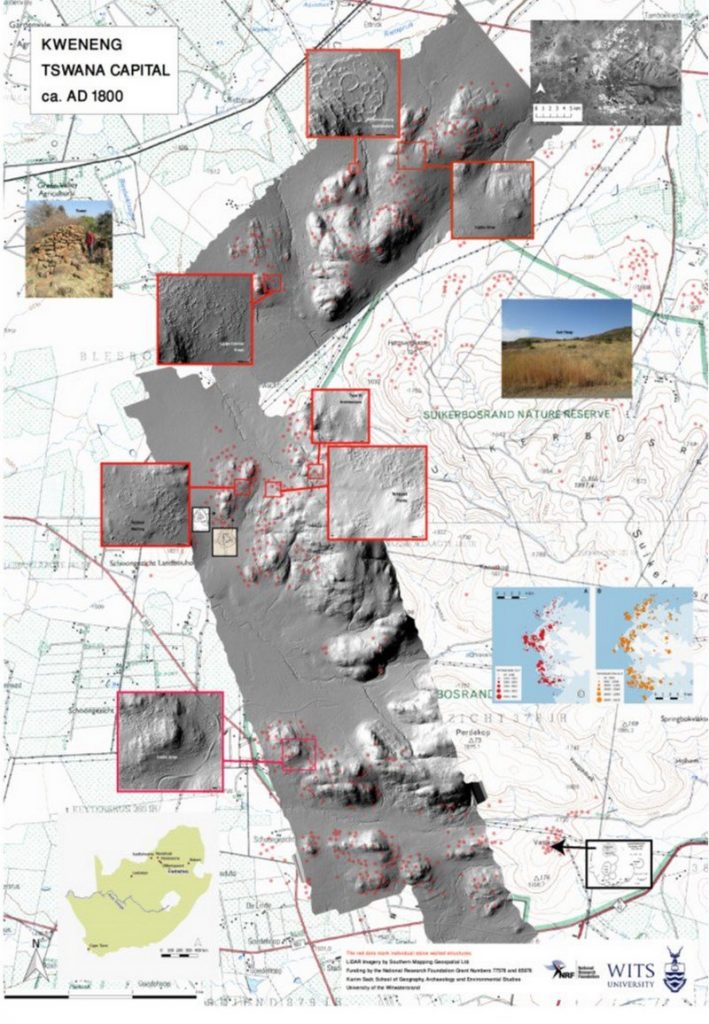Archeologists have discovered a lost 200-year-old city on the outskirts of Johannesburg, South Africa, that was once home to more than 10,000 people.
The metropolis, called Kweneng, was previously thought to be a scattering of ancient stone huts, but three decades of intricate research have finally revealed it to have been a city of 800 homesteads.
Watch: Archeologists from the @WitsUniversity have uncovered a long lost & wealthy Tswana city in Suikerbosrand hills, about 60 km south of Johannesburg. This great city existed long before the arrival of colonisers & debunks myths relating to the history of African civilisation. pic.twitter.com/9U5AODDsth
— Min. Nathi Mthethwa (@NathiMthethwaSA) January 30, 2019
The ancient site, located beneath dense vegetation at Suikerbosrand National Park, was mapped out using cutting-edge laser technology. Archaeologists used billions of lasers to penetrate through the vegetation and digitally recreate an image of how Kweneng once looked.

Kweneng, which is believed to have gone into decline following a civil conflict, reached its peak between the 15th and 19th century when it spanned about 20km (12.5 miles). For researchers, the discovery is an exciting window into the region’s past.
“What this means is filling in a huge historical gap, especially for southern Africa, because we know the pre-colonial history of southern Africa has no written record,” Fern Imbali Sixwanha, a member of the archaeological team who carried out the research at the University of Witwatersrand, told Reuters.
 Alghadeer TV Alghadeer TV
Alghadeer TV Alghadeer TV
